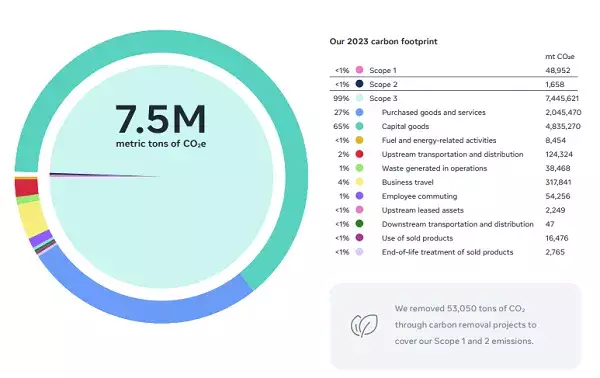In the fast-paced world of technology, transparency and commitment to ethical standards have become paramount for companies striving to maintain their relevance and integrity. Meta Platforms, Inc., known for its dominant presence in social media and technology development, recently released its latest “Responsible Business Practices Report.” This extensive document, spanning 144 pages, delves into various topics encompassing artificial intelligence (AI), the burgeoning metaverse, environmental sustainability, and societal responsibilities. By evaluating how Meta presents its initiatives, we can gain a clearer understanding of its strategic framework and underlying values.
Central to the report is Meta’s commitment to expanding access to AI technologies. The company has made significant strides in integrating cutting-edge generative AI models across its platforms, framing this initiative as a crucial step towards democratizing technology. By deploying an open-source approach to AI development, Meta aims to bridge the gap between different regions, ensuring a more equitable distribution of technological benefits. However, the challenge lies in ensuring that these efforts do not inadvertently amplify existing disparities. As regions with advanced access to AI gain advantages, those without such access risk falling further behind.
Meta emphasizes that its movement towards immersive experiences in augmented reality (AR) and virtual reality (VR) is essential in building the metaverse, a conceptual evolution in social interactions. This vision for the metaverse, however, raises questions about accessibility and equity. If only certain demographics or regions can fully engage with these technologies, the very goal of connectivity that Meta champions may be undermined.
Another noteworthy component of the report is Meta’s extensive investment in data privacy initiatives. The company claims to have allocated over $5.5 billion towards enhancing its privacy protocols since 2019. This encompasses a wide array of resources aimed at identifying potential privacy risks and proactively embedding protective measures within its products. Nonetheless, the effectiveness of these investments remains to be seen in an era marked by growing public skepticism regarding big tech companies.
While Meta’s narrative positions the company as a leader in data privacy, past controversies regarding user data collection and security breaches linger in public memory. An effective privacy program must not only be well-funded but also transparently executed and frequently evaluated to foster genuine trust among users.
Meta’s report also sheds light on its approach to political contributions, specifically its support for candidates whose policies align with the company’s public stance. The inclusion of this topic invites scrutiny, as political donations often lead to perceptions of bias and manipulation in governance. Although CEO Mark Zuckerberg refrains from endorsing specific candidates, the existence of MetaPAC as a vehicle for political support raises ethical questions about corporate influence over public policy.
This portion of Meta’s strategy illustrates the complexities of operating in politically charged environments. As tech companies wield substantial influence, balancing business interests with societal responsibilities becomes a precarious endeavor. The company’s efforts to participate in the political landscape may benefit its operational objectives, yet it risks alienating portions of its user base who may not agree with its stances.
Lastly, the report assesses Meta’s social impact initiatives and achievements. The company highlights its ongoing commitment to human rights and efforts to address harmful content on its platforms. However, as with any large entity, the path toward genuine accountability is fraught with challenges. The question remains whether these initiatives will result in meaningful change or if they are simply public relations strategies aiming to foster a positive corporate image.
Furthermore, while the report aims to portray Meta in a shining light, it is crucial to recognize the potential risks involved in the rapid development and deployment of technologies like AI. History has shown that technological advancements can carry unintended consequences, and the responsibility now lies with Meta to navigate these complexities carefully.
Meta’s “Responsible Business Practices Report” presents a vision rooted in innovation, connectivity, and ethical considerations. As the company seeks to carve its path in the evolving landscape of technology, it faces a breadth of challenges—ranging from equitable technology access and robust privacy measures to the nuances of political involvement and social impacts. Stakeholders must critically assess both the promises and pitfalls of Meta’s initiatives as they shape the future of not only the company but also the digital world at large. The journey towards responsibility is ongoing, and it will take more than compelling reports to navigate the complexities of modern business ethics effectively.


Leave a Reply